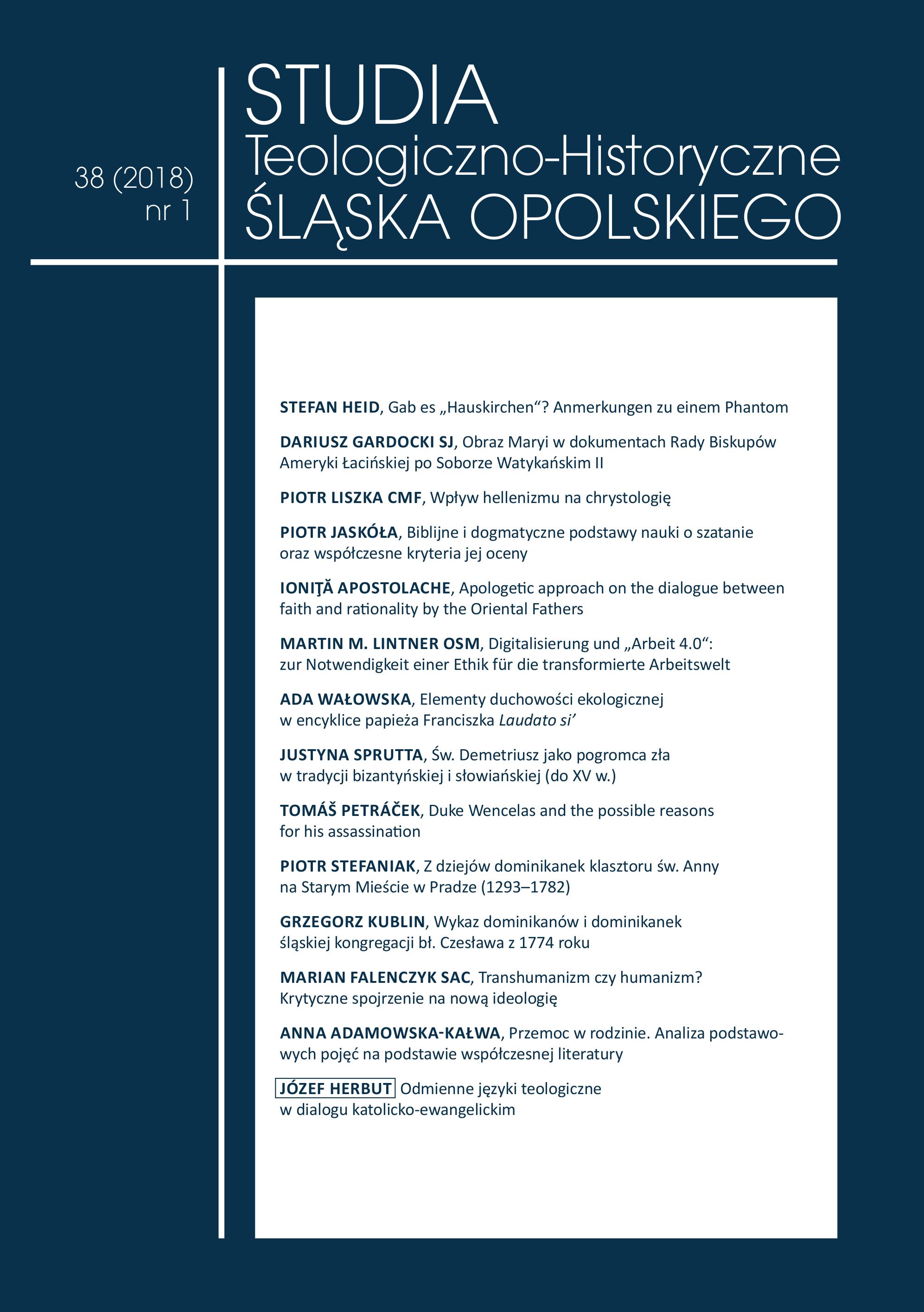Wpływ hellenizmu na chrystologię
Impact of Hellenism on Christology
Author(s): Piotr LiszkaSubject(s): Christian Theology and Religion, Theology and Religion, Biblical studies, Systematic Theology, Pastoral Theology
Published by: Uniwersytet Opolski
Keywords: Hellenism; Christianity; Christology; culture; Holy Scripture;
Summary/Abstract: Hellenism held that man had no worth in relation to God; it recognised the worth of human deeds, and it assumed them to be ultimately determined by the Absolute. Within the scope of doctrine, it was Christology that was most important; it held Christ combined in one person two natures: the divine and the human. Hellenism looked upon man as part of matter that happened to be enlivened by spirit. This led to the conclusion that the incarnation of God’s son could not have a redeeming function.Hellenism directly and indirectly influenced the life of Christians. Indirectly through the way of expressing the essence of the faith that shaped the mode of activities, and directly through the environment in which Christians lived.The struggle of the Church with Hellenism, which negated the worth of man as a being in relation to God, lasted over a long time or, to be exact, it has lasted ever since. Contemporary historical and exegetic research are often influenced by a Hellenistic and Gnostic way of thinking. The hypotheses put forward by present-day scholars make sometimes an impression that it is not the first Christians but the scholars themselves who make up their own Christology, divergent from the one preached by the Magisterium of the Church.
Journal: Studia Teologiczno-Historyczne Śląska Opolskiego
- Issue Year: 38/2018
- Issue No: 1
- Page Range: 69-84
- Page Count: 16
- Language: English, Polish

